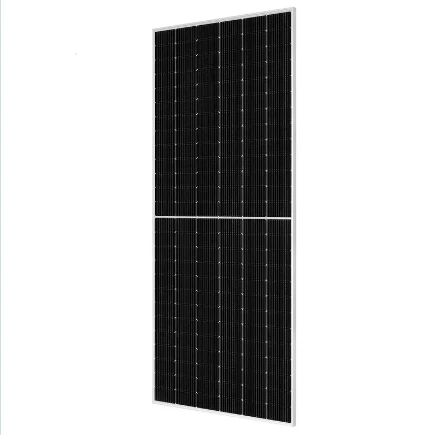Understanding the Benefits of On-Grid Solar Inverters for Your Home
Understanding On-Grid Solar Inverters A Key Component of Renewable Energy Systems
As the world shifts towards sustainable energy solutions, solar power has emerged as a leading choice for both residential and commercial energy needs. At the heart of most solar energy systems lies the solar inverter, particularly the on-grid solar inverter, which plays a crucial role in converting solar energy into usable electrical power.
What is an On-Grid Solar Inverter?
An on-grid solar inverter, also known as a grid-tied inverter, is a device that converts the direct current (DC) electricity generated by solar panels into alternating current (AC) electricity. This conversion is necessary because most home appliances and the electrical grid operate on AC power. The on-grid inverter synchronizes the output with the voltage and frequency of the grid, allowing excess electricity to be fed back into the grid, which can provide significant financial benefits to solar energy system owners.
How Does an On-Grid Solar Inverter Work?
The operation of an on-grid solar inverter involves several steps. First, solar panels capture sunlight and convert it into DC electricity. The inverter then takes this DC power and transforms it into AC power that matches the grid specifications. The inverter is also equipped with algorithms and safety features to monitor system performance, ensuring it operates efficiently and safely.
One of the most significant features of on-grid inverters is their ability to send excess power generated by the solar system back to the grid. This process, known as net metering, allows homeowners and businesses to receive credits on their electricity bills for the surplus energy produced, effectively reducing their overall energy costs.
Advantages of On-Grid Solar Inverters
on grid solar inverter

1. Cost-Effectiveness On-grid systems are generally less expensive than off-grid systems because they do not require battery storage to store excess electricity. Without the need for batteries, installation costs are significantly reduced.
2. Environmental Benefits By utilizing solar power, on-grid systems contribute to reducing greenhouse gas emissions and reliance on fossil fuels. This transition is essential for combating climate change and promoting sustainable energy practices.
3. Net Metering As mentioned earlier, one of the key benefits of on-grid inverters is the ability to feed excess electricity back to the grid, allowing users to save on their energy bills. This economic advantage can help recover the initial investment in solar technology over time.
4. Easy Maintenance On-grid solar inverters typically have fewer maintenance requirements compared to their off-grid counterparts, which rely heavily on battery systems. Most inverters come with warranties that ensure long-term functionality and efficiency.
Challenges and Considerations
While on-grid solar inverters offer numerous advantages, there are some challenges to consider. For instance, they require a stable grid connection to operate, meaning that in the event of a power outage, the system will not function. This limitation can be a deterrent for those living in areas with unreliable electrical service. Similarly, fluctuations in grid electricity prices can impact the financial benefits of net metering, making it essential for users to understand local regulations and policies.
Conclusion
On-grid solar inverters are an integral component of modern solar energy systems, making renewable energy more accessible and cost-effective. As the demand for sustainable energy solutions continues to grow, understanding the functionality and benefits of these inverters will empower consumers to make informed decisions about adopting solar technology. With the potential to save on energy costs while contributing to a greener future, on-grid solar inverters represent not just a technological innovation, but also a significant step towards energy independence and sustainability. Embracing this technology is not merely a choice but a responsibility towards our planet.
-
String Solar Inverter: The High-Efficiency Solution for Smart Solar EnergyNewsJul.14,2025
-
Revolutionizing Rooftop Energy with the Power of the Micro Solar InverterNewsJul.14,2025
-
Power Independence with Smart Off Grid Solar Inverter SolutionsNewsJul.14,2025
-
On Grid Solar Inverter: Powering the Future with Smart Grid IntegrationNewsJul.14,2025
-
Monocrystalline Solar Panels: High-Efficiency Power for the Future of Clean EnergyNewsJul.14,2025
-
Bifacial Solar Panel: A Smarter Investment for Next-Generation Energy SystemsNewsJul.14,2025







